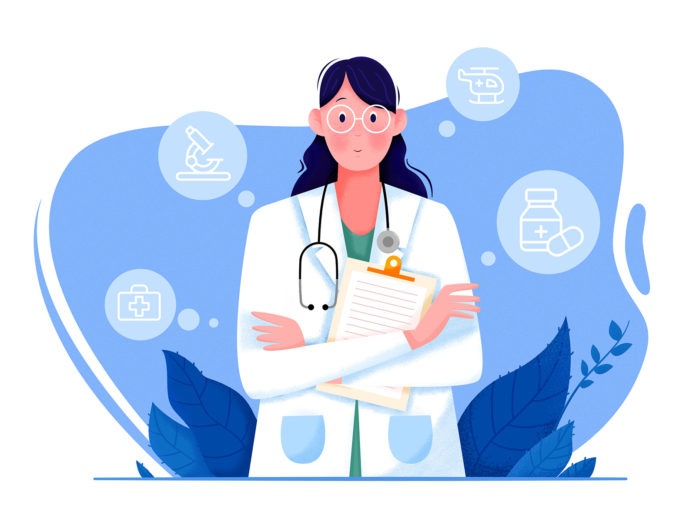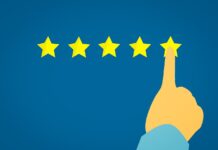By Harsimran Julka
A healthcare professional who tested positive after a brief trip to Europe from India shares precautions to take in order to avoid complications, and beat the infection.
The professional has now tested negative twice and in self isolation at home along with family members all of whom have recovered from the infection. She shares her lessons in ways how to beat the virus at its game.
Excerpts from a brief interview:
Q. How did you discover that you were infected? Where do you think you caught the infection from?
Answer: I had fatigue and a low-grade fever due to which I got myself tested and was diagnosed with COVID-19 at a local hospital.
It is hard to say where I caught the infection. It could have been in Europe as I was there in early March or through the airports.
Q. What are the common symptoms you saw amongst all your family members who were infected?
Answer: I had fatigue/fever/loss of sense of smell. My toddler son was asymptomatic. One of my family member had mild symptoms like fatigue.
Another had fever/fatigue/chest pain as she had developed a pneumonia and later she had a cough. All family members have recovered now.
Q. What immediate steps you took after getting infected?
Answer: At home when I developed symptoms I isolated myself and tried to get tested at the earliest. Once diagnosed I was admitted to a local hospital by the local health authorities and was isolated.
I took care of hand hygiene and kept safe distance from staff and put a mask on when they came to my room (doctors/ward boys etc.) even though they had the full PPE.
I kept a check on temperature and other symptoms.
Q. What were the specific precautions you took in relation to diet and nutrition?
Answer: I tried to eat healthy and regularly and maintained hydration.
Not sure of any evidence (of cure) but I gargled with warm water and as per family suggestions used raw garlic, nigella seeds.
Q. What was the specific line of treatment you took by way of medicines and diagnostic tests?
Answer: I was given Tamiflu 150 mg twice a day for 5 days. Was advised to take chloroquine but since have allergy did not take it.
I had swabs done every 48 hrs and after 24 hrs once I tested negative once. When I had two negatives I was discharged from the hospital.
Q. What would you recommend to people with infection having kids who need regular attention? How does the virus impact kids? Is the recovery rate better in kids than adults?
Answer: If the kids can be cared for by someone else the patients should not be around kids and isolate/quarantine themselves.
If you have no choice then use masks/gloves/hand hygiene and take precaution.
Kids get mild symptoms and mostly diarrhoea and GI (gastro-intestinal) related issues. They usually do well and very few cases of deaths are reported in the paediatric population.
Q. What recommendations would you give people wishing to travel or go about their daily business in Covid times, especially those who have never been tested?
Answer: I would recommend using masks, gloves. Social distancing. Washing hands and sanitising as much as possible.
If you develop typical symptoms of COVID-19 isolate yourself alert the authorities and get tested.
People with medical conditions and especially more than 60 years of age should stay home and protect themselves as they are the most vulnerable.
Q. What mismanagement did you see in managing Covid cases in India? How can state health authorities respond better in handling such patients?
As I was one of the first few cases in March there was no preparedness in terms of a dedicated ward/staff/PPE/infection control procedures in India when I was admitted. But the in-charge doctor did slowly put everything in place.
I was alone in a room of a ward. I don’t know if someone is on oxygen how would they be monitored closely when they are all alone by themselves in a room of a ward.
I cannot imagine everyone requiring oxygen will all be in ICU. (Some patients may require bit of oxygen though).
As the front desk staff changed shifts and so did their contact cellphone numbers. Hospitals should have had a common telephone at front desk to help family members keep in touch.
The room cleaning eventually started happening properly but initially there was confusion. I got to know that in many government hospitals they admit all patients in one ward and there is a common washroom. I don’t think that is good for infection control.
PPEs should be changed between rooms to avoid contamination. There should be dedicated medical equipment for rooms.
Mild cases should be in home isolation if possible (I understand now they have this rule). Stable patients could pick up other infections at government hospitals.
The government really needs to work on infrastructure in public hospitals. Funding is needed for renovations.
Private hospitals should also be providing beds for Covid patients so that if someone wants to pay and get admitted the option should be available.
Now the cases are quite high and government hospitals cannot manage all by themselves.
Ambulances from offices of the Chief Medical Officer and the public hospital were dirty/rusty and I don’t think they are sanitized between patients. I feel they could be a source of infection for suspected patients being taken.
There was an instance where half a dozen of my family members were in an isolation ward together, waiting for results.
This should be avoided as other negatives could be exposed and would be in close contact with positive which increases their risk.
In our case, my son was positive and results came after 4 days and he was around another family member who was a senior citizen, had hypertension and had a recent heart ailment. Thankfully she did not get the infection.
More awareness and more testing (smaller cities and towns). Of course, big cities have been testing extensively.
Q. Any suggestions for society and hospitals to deal with infected patients in their communities?
I realised there was a big stigma against patients. Essential services should not be interrupted for patients in home quarantine. Neighbours need to understand that this could happen to anyone.
Healthcare professionals should speak to patients and family to explain the next steps in management.
Patents who come to hospital for other reasons (than Covid) should not be denied treatment while waiting for Covid results.
On the same line ambulances should be functional as there are a whole lot of other medical issues for which patients seek attention.
I have heard about patients dying trying to get to hospital or in hospital due to these reasons.
(The Covid survivor’s identity has been hidden to maintain privacy)
Know anyone who has survived Covid? Please feel free to share your experience.












